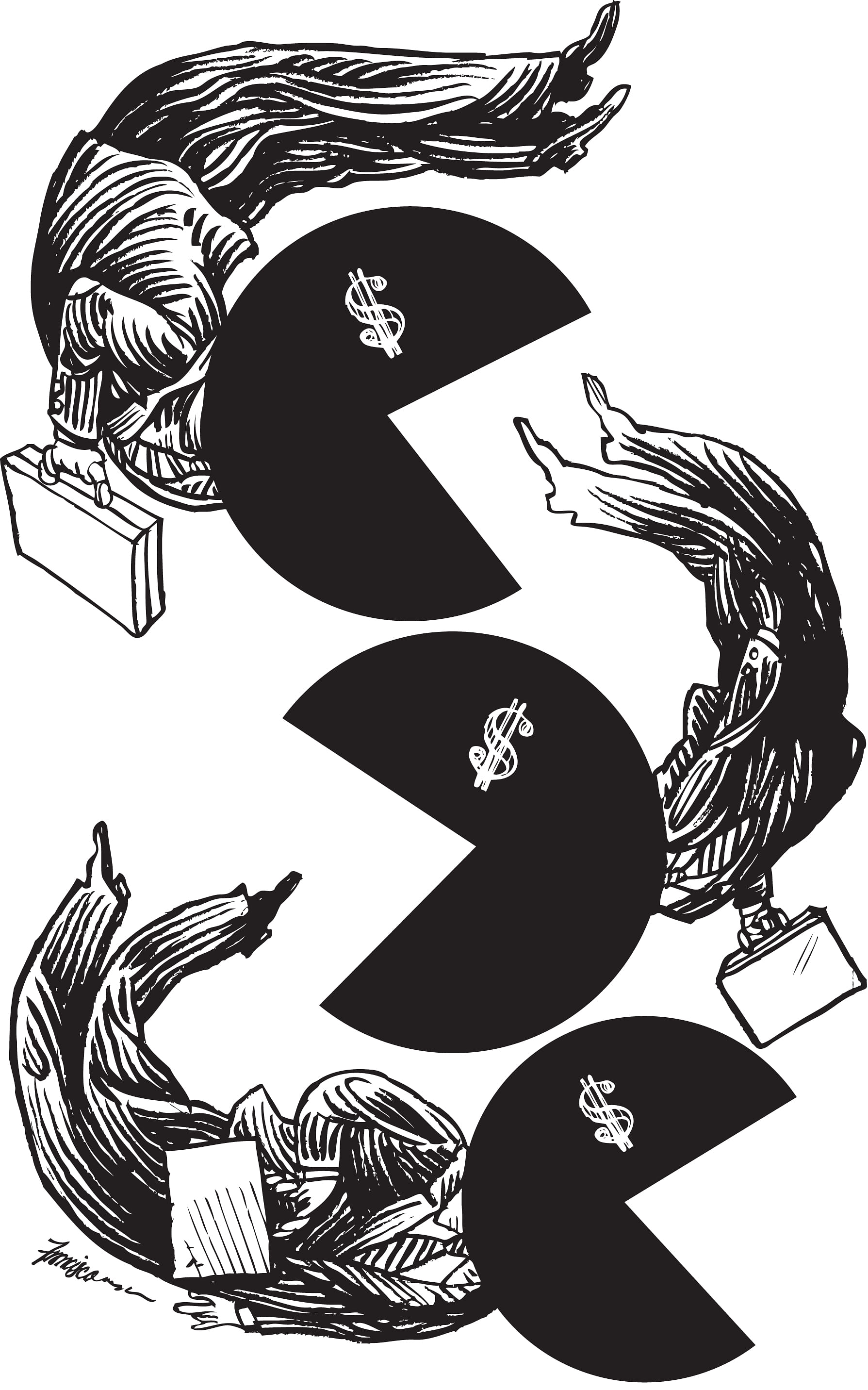Instead of the usual quiet lead-up to Christmas, December has proved to be anything but. There was the United States Federal Reserve's move to raise interest rates after nearly a decade; even if widely anticipated, it was still a momentous decision.
And in Singapore, there were two large corporate moves, coincidentally by French companies and both in quick successions within a week.
The first was the world's third largest shipping company CMA CGM announcing that it would be buying over Neptune Orient Lines (NOL) in a $3.38 billion deal.
The other was Paris hotel operator AccorHotels buying FRHI, the owner of the Fairmont, Swissotel and Raffles brands which manages three hotels in Singapore, among them the iconic Raffles Hotel.
And from the United States came news of the ultimate blockbuster deal: US chemicals groups Dow Chemical and DuPont, both founded in the 19th century, agreeing to a merger to create a business with a market value of US$130 billion (S$182.6 billion).

The year 2015 is shaping up to be one for the record books in terms of mergers and acquisitions globally, according to DeaLogic.
Apart from the Dow and DuPont combination, US pharma group Pfizer's deal with botox-maker Allergan was another mega deal as were brewer Anheuser-Busch InBev's bid for rival SABMiller and Shell's acquisition of the gas group BG.
Different deals, different sectors but all underscoring the importance of scale. In this global world, bigger is better because it gives industries an edge in a time of slowing growth, tougher competition and higher costs.
Take CMA CGM on its purchase of NOL: "Joining forces will enable us to grow our industry which faces new challenges... We believe that scale is more critical than ever to sustainable growth," Mr Rodolphe Saade, vice-chairman of CMA CGM, was quoted as saying.
Chairman and chief executive of DuPont Edward Breen said that the move "gives us the ability to create three highly focused companies, because of the combined assets, capabilities and scales".
And for FRHI, which is being acquired by Accor, there seemed to be a recognition that successful as it already is, being part of a larger group is necessary to grow further.
One of FRHI's shareholders, Qatar Investment Authority's CEO Sheikh Abdullah Bin Mohammed Bin Saud Al-Thani, said: "This deal generates the scale needed to drive the next phase of growth in our real estate and hospitality investments."
For Accor itself, the story is still about acquiring scale but the emphasis is on expanding into a different segment.
Insead's professor of management practice Narayan Pant notes that "Accor has played in various segments of the hotel business, going to the truly mass market segment... However, offers like Airbnb will eventually erode the lower end segment, if they haven't already. Hence players in this space may feel the need to have a more compelling offer at the high end and, with the acquisition of significant brand names like Raffles, Accor may be looking to consolidate its high-end brand positioning" .
Getting bigger through acquisitions works for companies who are growing fast but are yet to turn a profit, like tech companies. Equally, it works for struggling industries like shipping that need to trim costs.
As partner and managing director at consultancy Boston Consulting Group Stuart Walker put it: "In shipping, the move towards further consolidation is needed. For a long time, many key industry players have struggled to generate returns above their cost of capital and, increasingly, staying in the business requires significant asset investments in large ships. This investment, along with softening demand and over supply, makes the conditions ripe for consolidation."
And Asia is where one is likely to see more of this consolidation activity, not only because of struggling companies but also because there are more such targets.
Mr Harsha Basnayake, EY Asean Managing Partner for Transaction Advisory Services, said that "one of the characteristics in the South-east Asian markets is that many industries are very fragmented and therefore there is a lot more scope for consolidation. In addition to this, Asean is being recognised as a power play among emerging markets, given our demographics and outlook in the medium term."
GAINING FROM MERGERS
What can Singapore companies make of this?
Recent deals show that they will find themselves courted by global giants. Many Singapore companies are well run and are among the leading organisations in Asia. NOL may be loss-making but its asset is strong Asian-US routes that CMA CGM lacks. Singapore's oldest law firm Rodyk & Davidson and global player Dentons recently announced a tie-up, a recognition of Singapore's stature as an Asian legal hub.
These companies end up being sold or merged because owners and shareholders may be searching for better opportunities elsewhere or feel the tie-ups create value.
The sense is that deals should now be viewed more for the macro impact on a particular industry and the economy rather than the ownership of any one company.
Director at Drewry Maritime Services Rahul Kapoor said about the NOL deal: "The key takeaway here is Singapore's efficiency. This shows that Singapore is focusing growth on industries rather than on individual companies."
With CMA CGM committed to reinforcing Singapore as a maritime regional hub, it should translate to more traffic coming through ports here, a very critical plus for our shipping sector.
One other inference about scale suggests that Singapore companies will have to be more open to such overtures. National brand names may end up being being subsumed within global organisations. The lack of public uproar over the NOL deal may partly indicate that there is little choice given these globalisation trends.
However, these trends suggest that the converse should also be true. Few Singapore firms are world beaters. They need to build scale quickly as they no longer have the luxury of time to grow organically.
Perhaps Singapore firms need to be even bolder about going overseas, rather than being cautious and weighing up the risks. Of course, regulatory hurdles mean that this is often easier said than done.
Already with the hike in US rates, borrowing costs will increase and a stronger greenback will make deals in the US more expensive.
If Singapore firms do not act fast, they may end up being on a one way street where they get bought out but do not do the buying.
While this may make sense on a standalone basis, it could mean that fewer Singapore companies will be in the driving seat on the global stage and that will be a pity.

